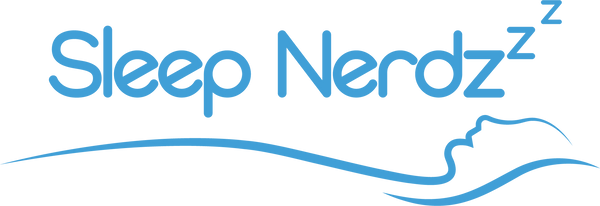Sleep Trackers: How Technology Is Transforming Your Rest
Sleep is the foundation of good health, yet millions struggle to get the quality and quantity they need. Thanks to advances in sleep technology, tracking and improving your rest has never been easier. Sleep trackers now provide deep insights into your nightly patterns, empowering you to improve sleep hygiene, reduce stress, and enhance your overall well-being.
By monitoring key metrics like heart rate, movement, and oxygen levels, these devices help you identify the habits, environments, and health factors affecting your rest. Let’s explore how sleep trackers work, the benefits they offer, and how to choose the best one for your needs.
How Sleep Trackers Work
Sleep trackers use a combination of sensors and algorithms to record your nightly activity and health signals. Depending on the device, they can measure:
- Heart Rate Monitoring — Tracks your heart rate to determine light, deep, and REM sleep stages.
- Movement Detection — Identifies restlessness and disturbances during the night.
- Breathing & Oxygen Levels — SpO2 sensors detect potential breathing issues like sleep apnea.
- Environmental Factors — Advanced devices track room temperature, humidity, and noise.
With this data, sleep trackers provide personalized insights to help you make targeted improvements.
The Benefits of Tracking Your Sleep
Monitoring your sleep impacts more than just your rest—it supports your physical, mental, and emotional health.
- Improved Sleep Hygiene — Spot and change habits that disrupt rest.
- Better Stress Management — See how stress affects sleep and take steps to relax before bed.
- Optimized Sleep Environment — Adjust light, temperature, and noise for maximum comfort.
- Boosted Mental Clarity — Enjoy sharper focus and improved mood.
- Fitness Support — Track how sleep impacts recovery and performance.
- Early Health Detection — Identify potential conditions like sleep apnea or irregular heart rhythms.
Wearable vs. Non-Wearable Sleep Trackers
Wearables
Worn on the wrist, finger, or head, wearable devices like the ZenRing Smart Ring deliver detailed health metrics throughout the night.
- Pros: Real-time accuracy, tracks activity and recovery, portable.
- Cons: Some find them uncomfortable; requires charging.
Non-Wearables
Placed under the mattress or integrated into bedding, non-wearable trackers like the Guardian Mattress Topper offer hands-free monitoring.
- Pros: No contact needed, tracks environmental data.
- Cons: May provide fewer biometric details; setup required.
AI and Machine Learning in Sleep Tech
AI-powered sleep trackers take personalization to the next level by analyzing your habits and predicting disruptions before they happen.
- Adaptive Learning — Recommendations based on your unique patterns.
- Smart Alarms — Wake you in your lightest sleep phase.
- Predictive Insights — Forecast potential issues for proactive improvements.
Choosing the Right Sleep Tracker
- Accuracy & Metrics — Look for heart rate variability, SpO2, and stage tracking.
- Comfort — Decide between wearable or non-wearable options.
- Battery Life — Longer life means uninterrupted monitoring.
- Smart Features — Consider guided meditations, smart alarms, and AI coaching.
- Compatibility — Ensure it syncs with your devices and health apps.
- Budget — Choose based on your needs and feature preferences.
Better Sleep Starts Here
Sleep trackers are more than gadgets—they’re health tools that can transform how you rest and recover. At Sleep Nerdz, we offer advanced solutions like the ZenRing Smart Ring, Guardian Mattress Topper, and other top-rated sleep trackers to help you sleep deeper, wake refreshed, and live healthier.
Explore our sleep technology collection and take control of your rest today.
